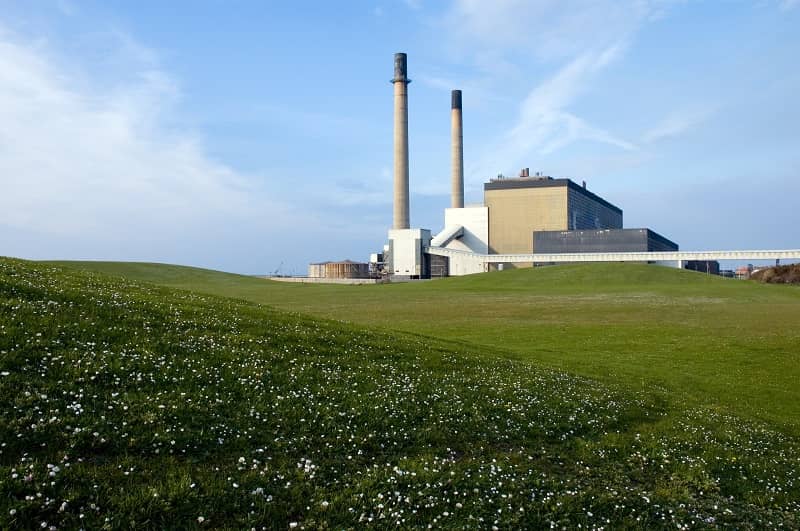New York Times science writer Andrew Revkin spoke in Portland on January 17th as the kick-off speaker in Illahee’s 2007 lecture series, Money Talks: Wealth, Politics and the Environment. According to the sponsors, the premise for the lecture series is that:
“Why do free markets and political democracy struggle to provide the mix of economic well being, equity, and environmental amenities that most people desire?”
In fact, free markets do a pretty remarkable job of providing these very things, but a Portland-based environmental group wouldn’t last long admitting that.
Mr. Revkin’s speech was entitled, “Oil, Climate and Money.” In many respects it was a travelogue of his career, showing slides of remote places he has visited throughout his life and relating those to his work as a science journalist. After referencing several environmental problems, he said that, “as a species, we need to move past our adolescent phase.”
This was an interesting way to describe the problem. The implication was that we (especially those of us in the U.S.) are the equivalent of slovenly teenagers, focused solely on self-gratification while dumping our waste everywhere. Yet the actual evidence points in the opposite direction. In those countries where property rights have been protected and markets allowed to function, per capita income levels have risen dramatically while pollution has decreased. We have a quality of life in this country unparalleled in human history, largely due to the benefits of capitalism. So if we’re in our adolescent phase, maybe it just means that capitalism is the child prodigy of the cultural ecosystem.
Mr. Revkin then moved on to another of his main points, that the latter part of the 20th century was marked by large “environmental catastrophes” such as the Exxon Valdez oil spill, the burning of the Cuyahoga River, the Chernobyl explosion, and Three Mile Island, while the challenge of today is the “slow-drip” of many smaller pollution sources. This was a theme he repeated throughout his talk.
While this is a seductive conceptual approach, it perpetuates a certain amount of environmental mythology. Three Mile Island, for example, was not an environmental disaster; the low-level radiation cloud released from the reactor was insignificant from an environmental or health standpoint. It was probably a financial disaster for the utility that owned it, but that’s not a concern for the public.
The burning of the Cuyahoga became an environmental icon only because it occurred in the age of mass media, not because it was, by itself, an environmental problem. The river had caught fire many times before, going back as far as 1868, due to debris that collected at bends or around railroad trestles. Moreover, Cleveland already had put significant resources into cleaning up the Cuyahoga when the famous 1969 event occurred (an event so small that the fire was already out by the time local media arrived), and the river was well on its way to environmental restoration.
The 1986 explosion at the Chernobyl nuclear plant and the 1989 oil spill from the Exxon Valdez had serious environmental and public health impacts, but in retrospect the consequences were less significant than first believed. Moreover, both were low-probability events, not representative of systemic problems.
It would have been more accurate for Mr. Revkin to say that during much of the 20th century we were confronted with large “point sources” of pollution, such as industrial smokestacks and municipal sewer pipes, whereas we now face the challenge of minimizing emissions from many more “non-point” sources such as automobiles, backyard grills, and lawn mowers.
But even here, Mr. Revkin left the audience with the wrong impression that things are getting worse. In fact, things are getting much better. In the early 20th century, cities were very unhealthy places due to high population densities, uncontrolled industrial emissions, the use of wood and coal for home heating, and vast quantities of horse manure and urine in public streets.
Today, all of that has changed for the better, as ambient monitoring data clearly demonstrates. Urban air quality is probably the best it’s been in the history of the country, virtually everyone has access to safe drinking water, major point sources are extensively regulated, and new cars and trucks are far cleaner then they were even 10 years ago.
Moving to the climate change issue specifically, Mr. Revkin’s next concern was that the public discourse suffers from the “tyranny of the Ph.D.’s,” whereby journalists feel compelled to interview people on both sides of the debate, those representing the so-called “consensus” of scientific opinion and those known as the “skeptics.” In Mr. Revkin’s view, this basic tenet of journalism actually does a disservice to the public, because it implies that each side has equal validity. He believes that the skeptics don’t deserve equal time because they have no legitimacy. He likened the skeptics to tobacco industry spokesmen who claimed for years that tobacco was a safe product.
Mr. Revkin misses the mark in several respects with this analysis. First, he misstates the nature of the real debate, which is not about the warming potential of gasses such as carbon dioxide. It has been known for over 100 years that carbon dioxide, water vapor, methane, and other trace gases in the atmosphere absorb a portion of the infrared heat radiated by the earth, creating the greenhouse effect. It’s also clear that the ambient concentrations of CO2 have increased steadily since the 19th century, as a result of industrialization.
The real debate is over what we should do about it, if anything. Policy makers must confront such thorny questions as: How much of an effect will the continued use of fossil fuels have on global climate, above and beyond what would occur naturally? If we mandate certain responses, what will be the costs and benefits of those actions, and how will they be distributed? If consumers are unwilling to voluntarily pay for global warming mitigation strategies, should the government force them to pay through mandates?
There is, in fact, no agreement on the answers to these questions, because they involve value judgments.
Mr. Revkin also places too much faith in what he imagines to be a “scientific consensus” about the causes and consequences of global warming (whatever warming means). History is littered with examples of the prevailing wisdom of an era later being overturned, in such disparate fields as astronomy, public health, medicine, and engineering. It’s almost certain that many of the doomsday projections being made today about climate change will prove to be wrong.
Mr. Revkin did admit that many environmental advocates over-play their hand. But instead of simply making the point and moving on, he felt compelled to insult the climate moderates at the same time. He said that if he had a choice of socializing with Greenpeace activists or staffers at Competitive Enterprise Institute, he’d much prefer the Greenpeace folks because they’re cool and the CEI people are boring. But, he said, Greenpeace clearly exaggerates the truth about climate change, which is counter-productive since the average citizen tunes out alarmism after awhile.
As someone who spent 20 years working in the environmental movement (Environmental Defense Fund, 1977-80; Oregon Environmental Council, 1980-96), followed by a decade at the free-market Cascade Policy Institute, I feel qualified to say that the coolness factor associated with Greenpeace is highly overrated. But regardless, why was it even necessary for a journalist to opine about this? His preferences for drinking buddies should be irrelevant to the policy discussion.
A more useful anecdote was his description of a story he once wrote in which he chided Al Gore for essentially yelling “fire in a hot planet” with his over-the-top movie, “An Inconvenient Truth.” As Mr. Revkin described it, a Gore movie producer responded to his story by saying, “Don’t you know this country runs on fear?”
In his concluding remarks, Mr. Revkin played off the famous President Bush line that Americans are “addicted to oil” by asserting that we “need a 12-step program” to wean the U.S. off its oil dependency. But President Bush was wrong in his analysis and Mr. Revkin is likewise wrong in his policy prescription. Americans use oil because it’s incredibly productive and economic. We’re no more addicted to petroleum then we are to indoor plumbing or the Internet.
The notion that we should make massive investment in alternative energy sources – as Mr. Revkin called for – makes little sense when such investments are generally unprofitable and consumers don’t care. Many politicians are trying to make a name for themselves in this arena, including Oregon Governor Ted Kulongoski, who wants to force electric utilities to use certain minimum amounts of renewable power. But more than 600 electric utilities in the country already offer “green power” programs, where ratepayers can voluntarily purchase electricity from wind or solar power generators at a price premium. Despite aggressive promotion by utilities, only 1.3 percent of ratepayers opted into such programs in 2005. If consumers are unwilling to spend their own money to subsidize renewable energy, why should they be forced to by the government?
Renewable energy sources will undoubtedly become economically viable over time, reducing the role of fossil fuels. But this will require capital investment, technological innovation, and many false starts to weed out the bad ideas. Capitalism is the only economic model likely to bring the best technologies to a mass market in a financially sustainable way.
Thankfully, the only time Mr. Revkin referenced the Kyoto Treaty was when he showed a slide of U.S. negotiators at an international conference, where he pointed out that they were not actually there to negotiate anything. He then made fun of the Bush administration by stating that the U.S. representatives were referred to as “fossils” by activist groups.
This line elicited some cheap laughs, but it wasn’t very informative. During the question period, when I asked him what he would have negotiated for if he were representing the U.S., his response was more insightful. He said that “Kyoto was never going to work. It was infeasible for the U.S., and President Clinton never submitted it to the Senate for ratification for that reason.”
It’s too bad he didn’t say that during his speech when he still had a full house listening.
Overall the talk was entertaining and played well to a friendly audience. But his bias was evident in his comparison of politicized climate science research to the tobacco industry studies of the 1960s. When he made that point, it was the free-market think tanks he was criticizing, simply because some of them have accepted donations from large oil companies. An impartial observer would have cautioned the audience to be equally skeptical of environmental advocacy funded by the Pew Charitable Trust or the Turner Foundation.
© 2007, Cascade Policy Institute. All rights reserved. Permission to reprint in whole or in part is hereby granted, provided the author and Cascade Policy Institute are cited. Contact Cascade at (503) 242-0900 to arrange print or broadcast interviews on this topic. For more topics visit the QuickPoint! archive.











